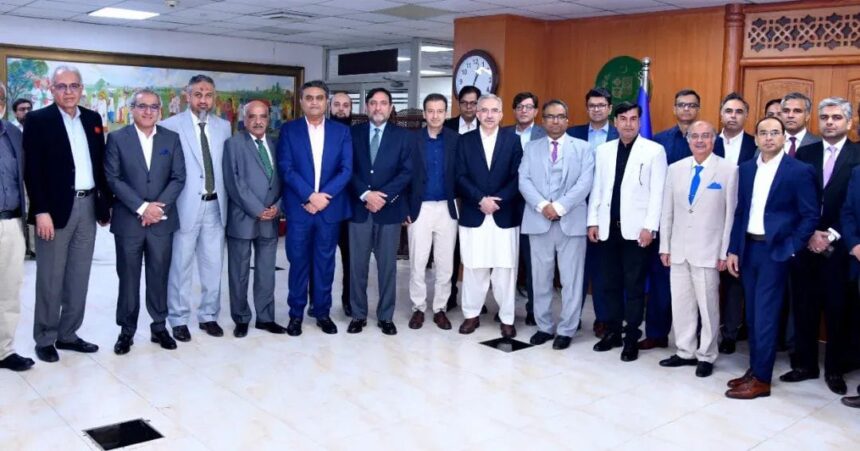The Trade Development Authority of Pakistan (TDAP) convened the inaugural Pharma Stakeholders Dialogue at its Karachi headquarters on 14 November 2025, bringing together major manufacturers, exporters, regulators, financial institutions and investors to shape a unified roadmap for enhancing pharma exports. The forum focused on practical steps to expand market access, improve compliance and unlock financing to help Pakistani firms scale for international competition.
Mr. Sheryar Taj, Secretary TDAP, opened the session by underscoring the event’s goal of developing an inclusive roadmap for the promotion of Pakistan’s pharmaceutical exports in consultation with all key stakeholders. He highlighted TDAP’s active role in supporting exporters through international exhibitions, trade delegations and the Authority’s flagship Health Engineering and Minerals Show as platforms to secure orders and build long-term market relationships.
Mr. Azhar Ali Dahar, Director General (E&M) TDAP, outlined facilitation measures aimed at opening new export corridors for Pakistani pharmaceuticals. He pointed to tangible gains from the Made in Pakistan Expo in Ethiopia, where secured export orders have bolstered Pakistan’s presence in Africa under the government’s Look Africa policy. He stressed the strategic importance of pursuing less stringent and non-traditional markets while simultaneously preparing a roadmap for entry into SRA-designated markets.
Discussion at the dialogue explored financing models to support compliance upgrades and capacity expansion, with potential collaboration from the State Bank of Pakistan, EXIM Bank, the Export Development Fund and private investment firms. Stakeholders examined how targeted financing and technical assistance can enable exporters to meet global regulatory standards and pursue higher-value destinations for pharma exports.
Mr. Faiz Ahmad Chadhar, Chief Executive TDAP, reaffirmed the government’s commitment to strengthening the pharmaceutical industry and noted improved liaison between government institutions and the private sector. He urged manufacturers to raise compliance standards, diversify beyond traditional export destinations and capitalise on the sector’s rising quality and readiness for high-potential markets.











